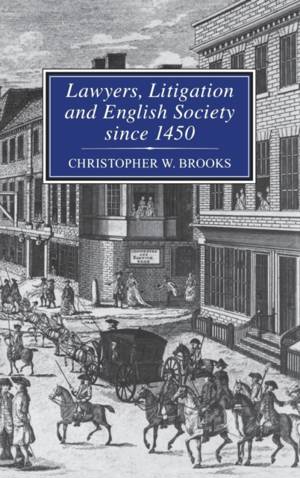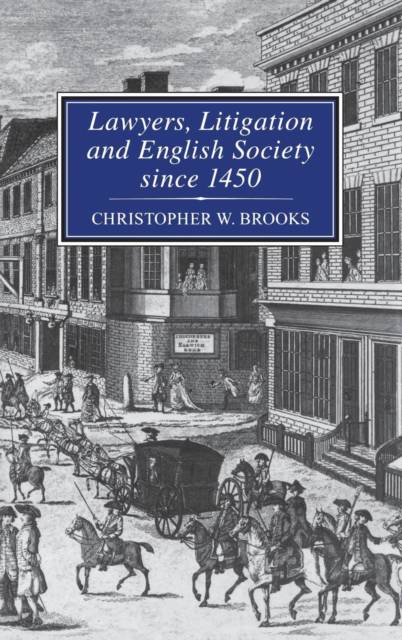
- Afhalen na 1 uur in een winkel met voorraad
- Gratis thuislevering in België vanaf € 30
- Ruim aanbod met 7 miljoen producten
- Afhalen na 1 uur in een winkel met voorraad
- Gratis thuislevering in België vanaf € 30
- Ruim aanbod met 7 miljoen producten
Omschrijving
Legal history has usually been written in terms of writs and legislation, and the development of legal doctrine. Christopher Brooks, in this series of essays roughly half of which are previously unpublished, approaches the law from two different angles: the uses made of courts and the fluctuations in the fortunes of the legal profession. Based on extensive original research, his work has helped to redefine the parameters of British legal history, away from procedural development and the refinement of legal doctrine and towards the real impact that the law had in society. He also places the law into a wider social and political context, showing how changes in the law often reflected, but at the same time influenced, changes in intellectual assumptions and political thought.
Lawyers as a profession flourished in the second half of the sixteenth century and throughout the seventeenth century. This great age of lawyers was followed by a decline in the eighteenth and early nineteenth centuries, reflecting both a decline in litigation and the perception of the law as slow, artificially complicated and ruinously expensive. In Lawyers, Litigation and Society, 1450-1900, Christopher Brooks also looks at the sorts of cases brought before different courts, showing why particular courts were used and for what reasons, as well as showing why the popularity of individual courts changed over the years.Specificaties
Betrokkenen
- Auteur(s):
- Uitgeverij:
Inhoud
- Aantal bladzijden:
- 290
- Taal:
- Engels
Eigenschappen
- Productcode (EAN):
- 9781852851569
- Verschijningsdatum:
- 1/11/2003
- Uitvoering:
- Hardcover
- Formaat:
- Genaaid
- Afmetingen:
- 155 mm x 245 mm
- Gewicht:
- 566 g

Alleen bij Standaard Boekhandel
Beoordelingen
We publiceren alleen reviews die voldoen aan de voorwaarden voor reviews. Bekijk onze voorwaarden voor reviews.











